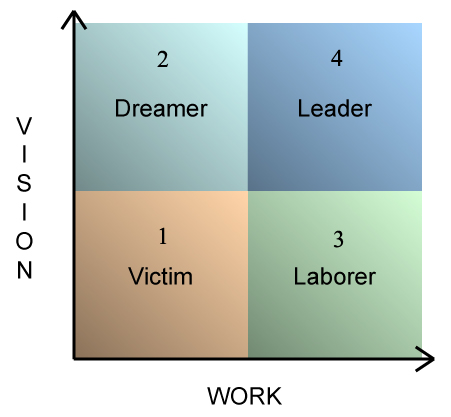I don’t think I can count the number of times I’ve heard people say that some aspect of writing couldn’t be taught. My personal favorite is that you can learn all the technique you want, but you’re either born with the ability to tell a good story, or you’re not. That you can’t learn how to tell a good story.
I personally think that the people who espouse these ideas have either spent entirely too much time dealing with writers who aren’t willing to put the work in, or we’re all a little confused on what, if any, difference there is between technique and telling a good story.
Writing is a craft, after all, and no one’s born a master of any craft.
Of course, we will probably never be utterly fantastic at every aspect of the writing craft. Some have fantastic world-building but a slow plot. Others great characters but not enough setting. Stephanie Meyer, for instance, has long been derided on her writing style, and has even admitted herself that she’s not the best writer, but she’s does a hell of a job weaving emotion into every scene and tugging the heart strings of her readers—which is exactly what her readers want.
The point being, just because you’re not the greatest at something doesn’t mean you’re not a good enough writer to be published. At the same time, ignoring your weaknesses because “it can’t be taught” is a total cop-out, in my opinion.
Like most everyone here, I dream for that day when I’m going about my usual day, doing something boring and what-not, only to happen upon someone reading a book with my name on it. I feel the despair that I’m not quite there yet and hear the clock ticking away the time that means there’s one more day I haven’t achieved my dream. And yes, I’m a realist. I know a good portion of that is fear of putting my work out there, but I also know I’ve still got some serious weaknesses that I need to address.
When I was a teenager, I had a choir instructor who explained that he taught people who were tone-deaf how to sing. It’s in understanding the real root of the problem that allows something like that to happen. With the tone-deaf people, they had to learn how the notes related to each other to be able to figure out how to go from one correct note to another correct note without wandering off, so to speak.
With writing, I think, it’s much the same. If you understand what the real problem is, you can fix it. You just might have to look a bit harder and be a little more creative to get the results you’re looking for.
My personal demon at the moment is plot structure. Something’s always escaped me about how to put one event before another and have it work to engage the reader, move the story forward, and still service the characters.
As a discovery writer, I lean toward minimal effort spent on deep planning before writing. Unfortunately, I’ve been struggling with a few stories that I have come to realize really need to be plotted before I start writing in earnest. So, recently I decided to dedicate a good portion of this year in workshops and classes specifically geared toward pre-writing. Currently, I’m doing David Farland’s online prewriting class at mystorydoctor.com, and while it has done a fantastic job in helping me learn how to plan a novel before I write it, it incidentally opened my eyes as why plot structure has always eluded me.
For me, there was one exercise in particular that helped me figure out what the real problem was. The idea was to establish circularity between characters in opposition to each other, by writing out how each character reacts to the actions of the other. This forced me to find the cause and effect of the conflict…and suddenly I know how my plot is supposed to work and how the sub-plots interact with it. Suddenly, I get it.
So, that’s my goal for this year, to focus on becoming a better writer by taking my weakness and working to learn how to get better at it.
I refuse to believe that there are things I can’t learn. The only thing I was born with was a love of stories. The writing portion is a work in progress.



